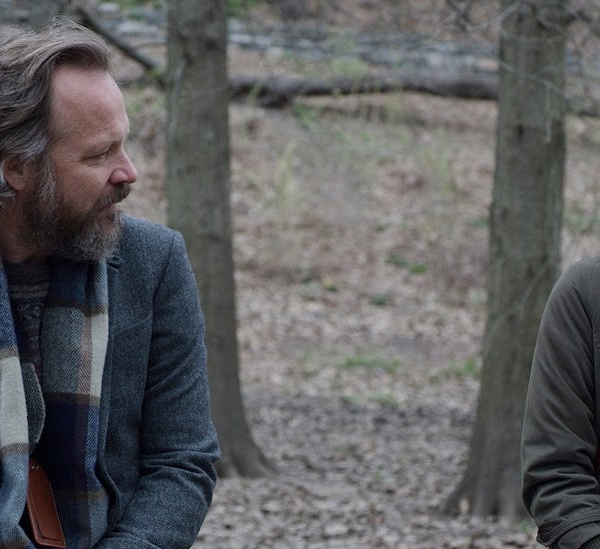
A sterile basement, untouched by tainted hands. A small coalition of the willing, clean, bright-eyed and brimming with a mixture of fear and optimism. A beautiful woman with a secret, clad in white, attached to a breathing apparatus, telling an outlandish story. Like the listeners, you hang onto every word, you cling to every hidden meaning. This is the world of “Sound Of My Voice.”
Zal Batmanglij’s directorial debut creates the milieu of limited visual possibilities that nonetheless brims with ideas. Our secretive woman, a young blonde who claims to be from the future, sounds outlandish until you consider this is Los Angeles, where dreamers outnumber the realists.

But there’s something different about this girl. An otherworldly confidence, perhaps. A notable skill at storytelling, maybe. Or is it that she actually does hail from a post-apocalyptic tomorrow, decades in the future where food is scarce and humanity struggles to rebuild? The science fiction implications of this idea fade away when you are face to face with Maggie’s steadfast confidence. Nearly unflappable, she naturally controls every scene where she appears, contorting the tempo and cadence of any relationship in her purview to accommodate her seemingly impossible story.
It’s Peter and Lorna who remain skeptical. A young couple making a living as documentarians, they have opted to live a lie, to penetrate the small cult that has now populated Maggie’s inner circle. In agreeing to bathe, trim and groom meticulously, they have allowed themselves entrance to the basement, where Maggie expounds on her philosophy and the insight she’s gained from her future world.
While both laugh in private about Maggie’s claims, the two of them sit stone-faced during Maggie’s sessions, with Peter secretly filming the events of each meeting. In its own way, the glasses he wears containing their secret camera is a ticking time bomb, a constant reminder of their intruder status. It’s Peter who remains cavalier, to the point where removing his glasses is never an option — Lorna still carries with her the guilt of this violation, herself seduced by the seeming benevolence of Maggie’s approach.
Maggie’s story, involving a future world with unspecified gaps in memory nonetheless captivates the handful of people frequenting Maggie’s basement. Adding to her mystique is the fact that she explains her noted fragility as an effect of the atmosphere, refusing to exit the house. Like everything, she explains this with a winsome smile and a conversational shift that frustrates, in that she remains bemused by the skepticism — in a personal moment shared with Peter, she responds to her own dubiousness with a kind laugh and a carelessness regarding the dedication of her followers. Like all interactions, it is manipulation. With teeth. 
Zal Batmanglij’s first feature is assured in that he has made a film that defies easy categorization. He begins the action in media res with a smash cut-aided opening that establishes the meticulous preparation and guardedly hostile process one undergoes to meet Maggie. But once we are face to face with Maggie, her guise angelic, the environment serene, we are immediately lulled into a sense of security. There’s a superficial kindness and warmth to the pseudo-spiritual therapy sessions that Maggie hosts, but Peter’s darting, nervous eyes remind us of the underlying tension, and the fear that, if you were to disappear from the group, you would disappear forever. Though the relatively unremarkable environment — patchy walls, barren floors — allows you to forget that this is a fairly science fiction premise, few filmmakers can do so much with such a sparse setting.
As Peter and Lorna, Christopher Denham and Nicole Vicius are believable as a couple who, at one point, had everything in common. Far from the main focus in the film, these two have such a chemistry that suggests intimacy related to common interests, instead of genuine identities. It’s a political divide, one that stems from their provocative subject that tests their principles and the flexibility of their belief systems. Much of that dynamic also emerges from co-writer Brit Marling, who also plays the eerie Maggie with a powerful sensuality that commands each scene. A supporting role, certainly, but a star turn, the kind of performance you are almost afraid of ignoring, and as Maggie holds sway over her devotees, it’s hard not to feel that the audience is in that basement. In the end, as Maggie’s story becomes normalized and familiar, it is the sound of her voice that continues to command. [A]




